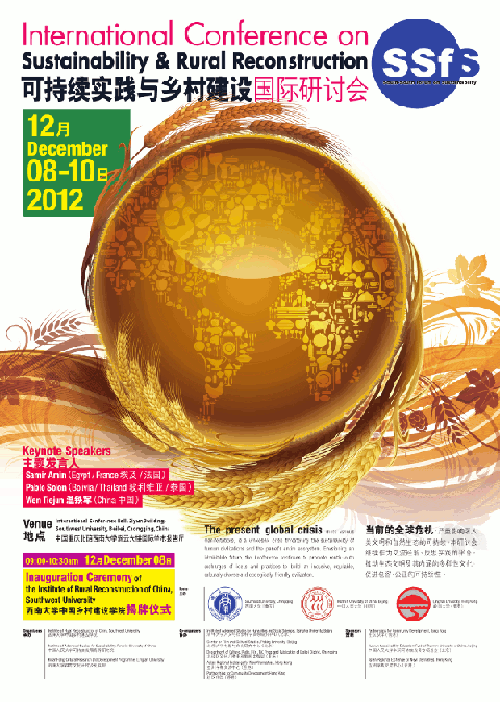Event Title
2012 International Conference on Sustainability & Rural Reconstruction
Start Date
8-12-2012 5:00 PM
End Date
8-12-2012 6:15 PM
Language
English
Description
At least 80 million hectares of land have been recently purchased in what are being termed ‘land grabs,’ around three quarter of which are in Africa. The deals, displacingAfrica’s small farmers, primarily women, are often facilitated by the World Bank’s International Finance Corporation, acting as a one-stop-lease-shop via Investment and Export Promotion Agency. These agencies remove obstacles allegedly blocking Foreign Direct Investment by constructing sovereign-backed toolkits, streamlining for investors issues ranging from land ownership, availability, titling, to legal obligations, taxes and duties. While the architecture of land grabbing is an extension of the neoliberal system, a new set of land-grabbers have emerged: Brazil, Russia, India, China and South Africa (BRICS). Contemporary large-scale land acquisition comes three new dangers: opaque export-oriented production on the land, including unchecked access to water as well as genetically-modified crops and wasteful biofuels; land markets being distorted by newly-veiled ownership systems associated with offshore financial and corporate centres; as well as land (and agricultural products) framed as a new asset class, where higher prices for grain, constitutes a success story in spite of rising fears of world food shortages. This neoliberal expression of land-grabbing has deepened inequalities within Africa, creating a new class of landless peoples; removing reality-based concepts of land to nominal concepts (land as financial stock); destroying food security and sovereignty; altering use-values - from basic needs to biofuels, carbon farming, export commodities; and undermining gender-based security, encompassing the foundation of families and communities. These new forms of enclosure -- land titling, land as asset class, and land-for-export – are not just the preserve of traditional imperialist powers, but represent new, sub-imperialist relations associated with BRICS countries’ move into Africa, wherein a new global elite criss-cross time, wealth and space, while dispossessing millions in the short and long run.
Document Type
Conference
Recommended Citation
Sharife, K. (2012, December). Land grabbing in Africa. Paper presented at 2012 International Conference on Sustainability & Rural Reconstruction, Southwest University, Chongqingng, China.
Included in
Demography, Population, and Ecology Commons, Growth and Development Commons, Other International and Area Studies Commons, Place and Environment Commons, Sociology of Culture Commons
Land grabbing in Africa
At least 80 million hectares of land have been recently purchased in what are being termed ‘land grabs,’ around three quarter of which are in Africa. The deals, displacingAfrica’s small farmers, primarily women, are often facilitated by the World Bank’s International Finance Corporation, acting as a one-stop-lease-shop via Investment and Export Promotion Agency. These agencies remove obstacles allegedly blocking Foreign Direct Investment by constructing sovereign-backed toolkits, streamlining for investors issues ranging from land ownership, availability, titling, to legal obligations, taxes and duties. While the architecture of land grabbing is an extension of the neoliberal system, a new set of land-grabbers have emerged: Brazil, Russia, India, China and South Africa (BRICS). Contemporary large-scale land acquisition comes three new dangers: opaque export-oriented production on the land, including unchecked access to water as well as genetically-modified crops and wasteful biofuels; land markets being distorted by newly-veiled ownership systems associated with offshore financial and corporate centres; as well as land (and agricultural products) framed as a new asset class, where higher prices for grain, constitutes a success story in spite of rising fears of world food shortages. This neoliberal expression of land-grabbing has deepened inequalities within Africa, creating a new class of landless peoples; removing reality-based concepts of land to nominal concepts (land as financial stock); destroying food security and sovereignty; altering use-values - from basic needs to biofuels, carbon farming, export commodities; and undermining gender-based security, encompassing the foundation of families and communities. These new forms of enclosure -- land titling, land as asset class, and land-for-export – are not just the preserve of traditional imperialist powers, but represent new, sub-imperialist relations associated with BRICS countries’ move into Africa, wherein a new global elite criss-cross time, wealth and space, while dispossessing millions in the short and long run.
